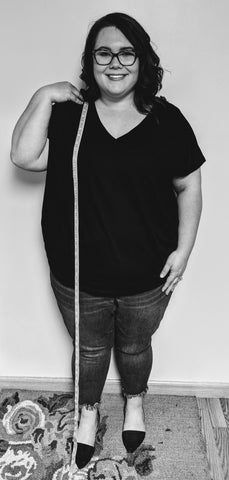How to Take Body Measurements
Having garments custom made to your own body measurements is a unique advantage of ordering from Hannah Caroline Couture. But we understand that not everyone works with their measurements everyday like we do!
Because our garments are made to order, and because we want to empower you to take accurate measurements to ensure a great fit, we put together a quick guide to taking accurate measurements.
A few things to note...
- All measurements must be taken in inches.
- Stand up straight! Slouching can alter more measurements than you may think.
- Keep the measuring tape snug, but not too loose or so tight that it squeezes in. We will add in a bit of ease in areas where it is necessary for comfort and function. Please don't add in or take away any room for us – that's our job! :)
- Don't alter your body for the measurements. This means don't suck in, stand on your tip-toes, or other modifications that could make the measurements less accurate.
- Try to wear the same bra and undergarments (shapers, tights, etc.) that you plan to wear with the garment you're ordering.
- It can be helpful to have a friend take the measurements for you. Some measurements can be difficult to do on your own.
- If you don't feel comfortable taking your own measurements, most local tailors will take them for you for free or a very small fee. Just be sure to show them this guide to make sure they're taking the measurements at the same locations on your body as my diagrams demonstrate!
- Measurements involving dress length should be taken wearing the same height of shoes as you plan to wear with the dress. For example, if you plan to wear 3-inch heels with the dress you are ordering, you should also wear 3-inch heels when taking the measurements involving dress length. Keep in mind that dresses can almost always be hemmed up shorter, but cannot usually be made longer. If you are worried about something being too short, please add a bit of length accordingly.
- If you have any questions about how to take measurements, we are here to help! You can contact us via chat (in the lower right corner) or via email.
A perfectly-fitting garment from Hannah Caroline Couture starts with taking accurate measurements. Here's an illustrated guide on how to take them!
Common Measurements
Most of our garments require these common measurements. Here's how to take them.
Bust
The Bust measurement should be taken around the fullest part of your bust – across the nipples in front and at or just below your shoulder blades in the back. The measuring tape should be kept level all the way around.
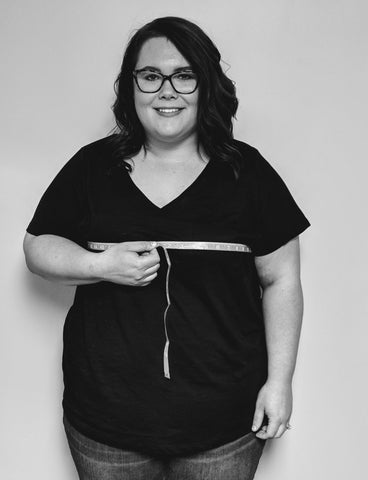
Waist
The Waist measurement should be taken around the smallest part of your waist, usually between your lowest rib and your belly button.

Hip
The Hip measurement should be taken around the widest part of your hips and buttocks.

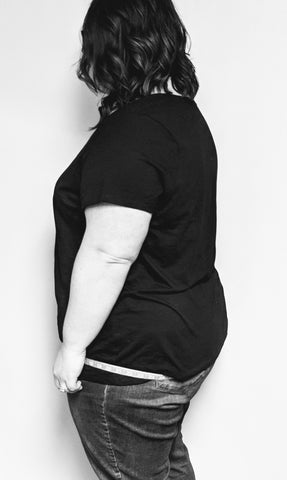
Waist to Hem
The Waist to Hem measurement is a vertical measurement that should be taken from where you took your Waist measurement down to the bottom of the hem. This could be your knee, the floor, or another length depending on which dress length you choose for a particular design.

Shoulder to Waist
The Shoulder to Waist measurement is a vertical measurement that should be taken from the top of your shoulder (where the shoulder seam of a shirt usually is) down to where you took your Waist measurement.
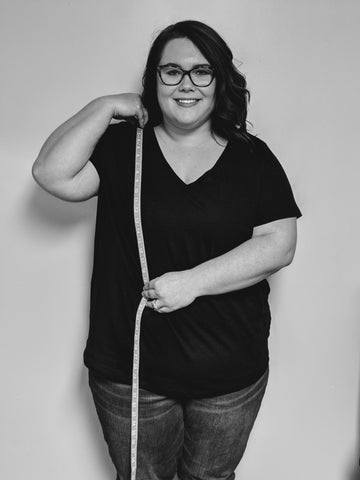
Arm Length
The Arm Length measurement measures the length of your desired sleeve, based on which sleeve length option you choose for a particular design. It should be taken from the top of the shoulder (where a shoulder seam usually starts on a shirt) down to the length you chose (such as the wrist for a full-length sleeve).
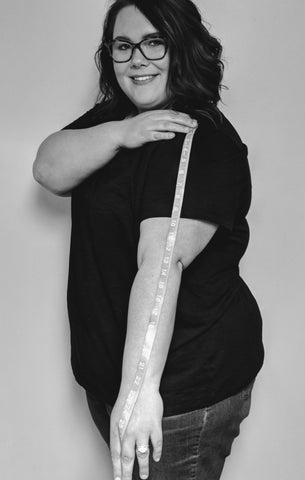
Arm Width
The Arm Width measurement should be taken around the fullest part of your upper arm to ensure that the sleeve will not be too tight or too loose.
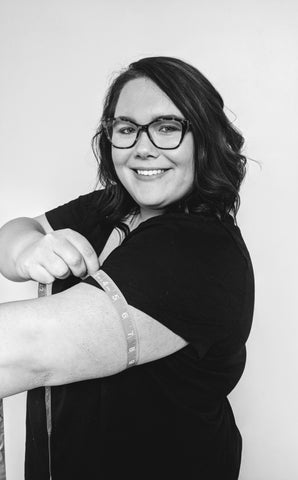
Other Measurements
Some of our garments also require these measurements. Here's how to take them.
Neck
The Neck measurement should be taken around your neck, near the base to ensure it won't be too tight.

Underbust
The Underbust measurement should be taken right under where you took the Bust measurement. It should be around the rib cages, and is a measurement commonly used for determining bra size.
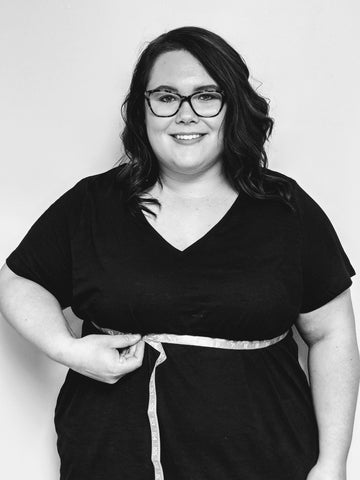
Waist to Hip
The Waist to Hip measurement is a vertical measurement that should be taken from where you took the Waist measurement down to where you took the Hip measurement, taken along the side of your body.
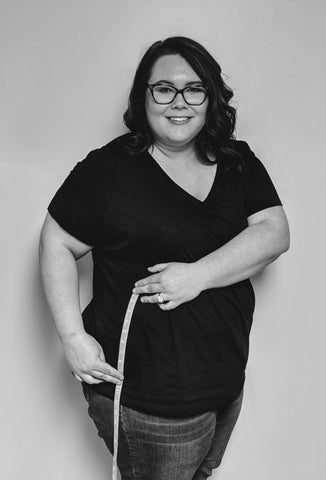
Wrist
The Wrist measurement should be taken around your wrist, right above where your arm joins your hand.

Inseam
The Inseam measurement is most often used for determining the length of pant/jumpsuit legs. This measurement should be taken from the top of the crotch (where the seams of a pant leg all intersect) down to the length of the pant. This length could depend on which option you choose for a particular garment, so it could be your knee, ankle, the floor, or shorter.
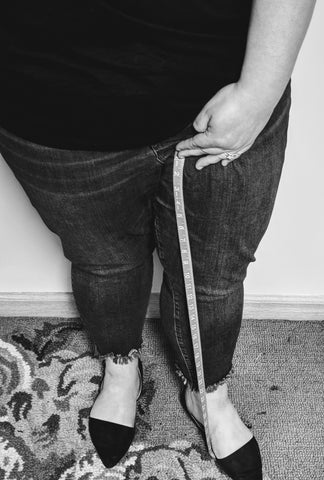
Rise
The Rise measurement tells us whether something is high-rise, mid-rise, low-rise, etc. This measurement is taken by measuring from the top of where you want the pants to be, down through the crotch, and back up to the top of the pant in the back. It can be helpful to wear a pair of pants that sit where you want the HCC garment to sit while you take this measurement. This measurement can also be separated into two measurements: Front Rise and Back Rise. Front Rise is simply from the intersection point of the seams at the crotch up to where you want the garment to sit in the front; Back Rise is simply from the intersection point of the seams at the crotch up to where you want the garment to sit in the back.


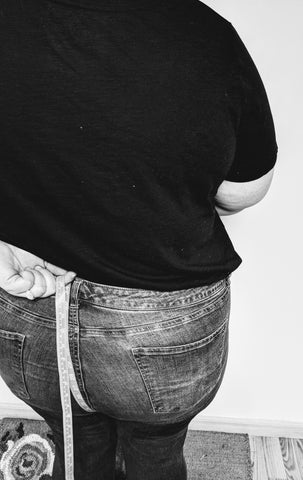
Shoulder to Hem
The Shoulder to Hem measurement measures the total length of the garment from the shoulder down to the hem. This vertical measurement should be taken from the top of the shoulder (where the shoulder seam of a regular shirt would be) down to the hem of that particular design, which could be the knee, ankle, floor, etc.
